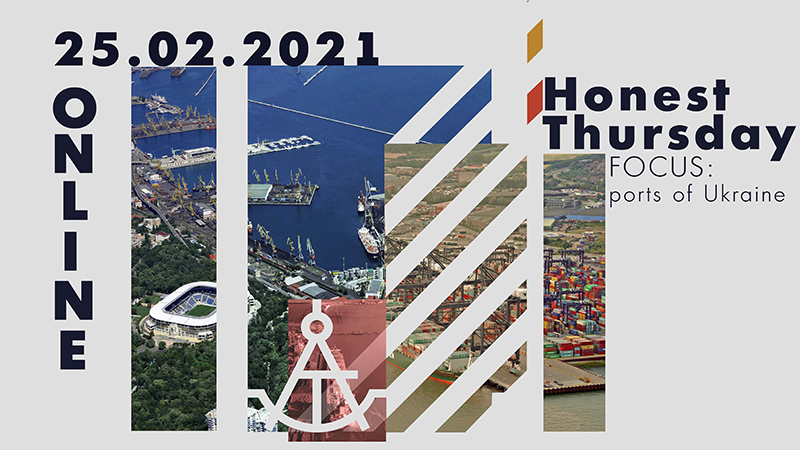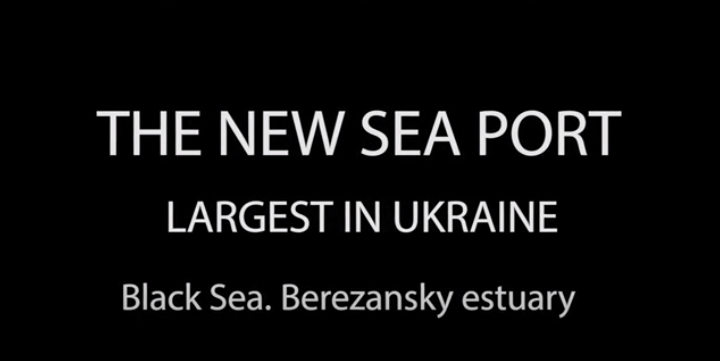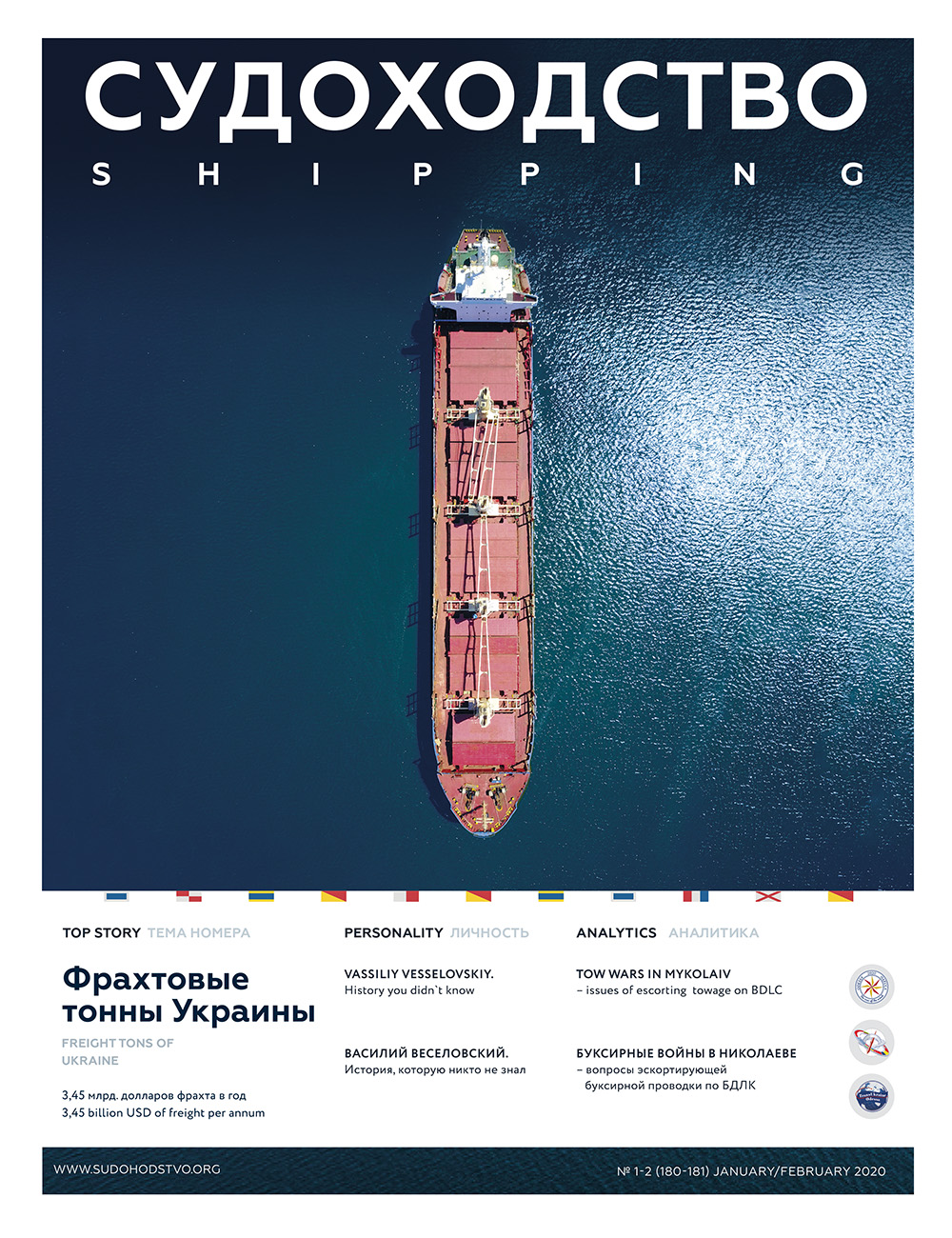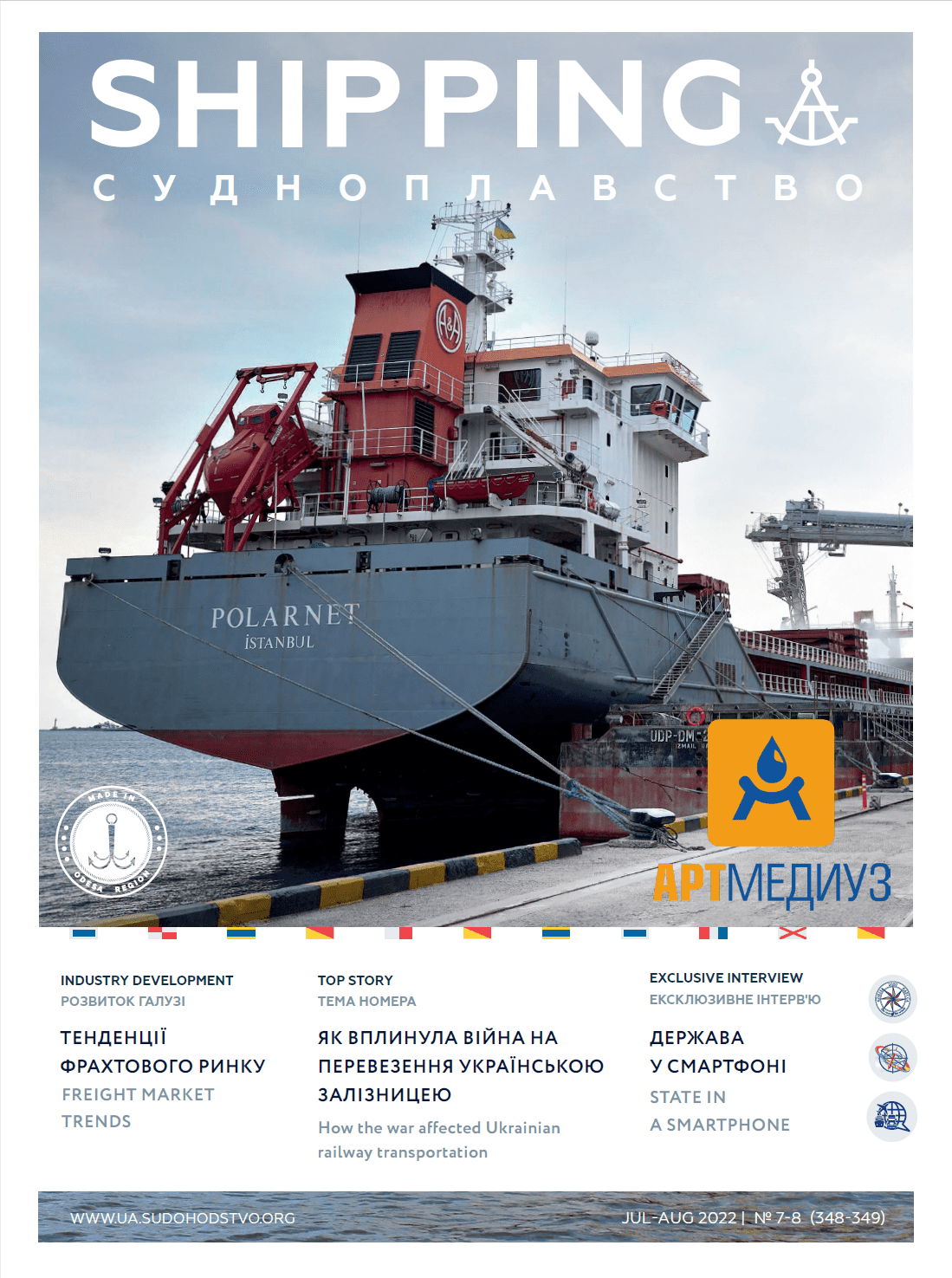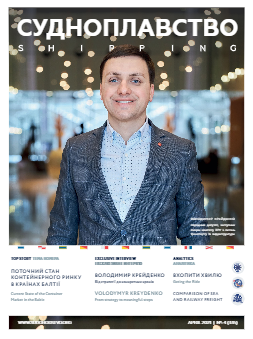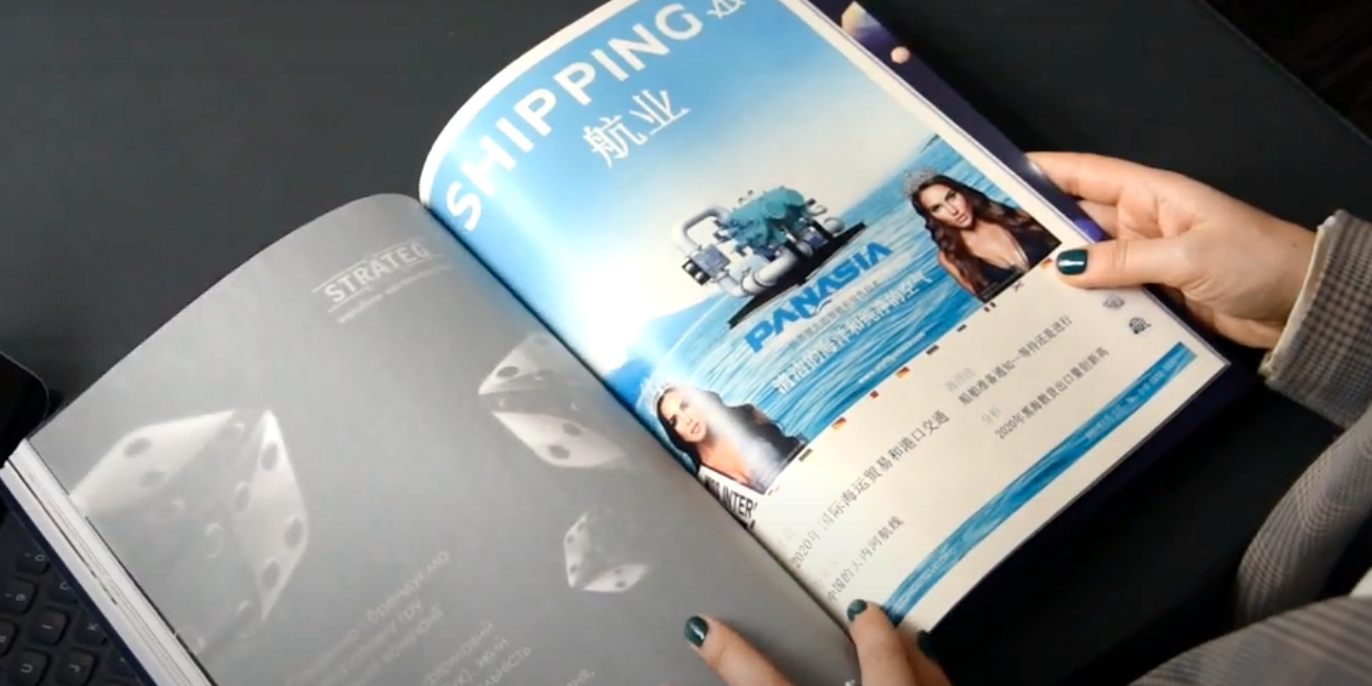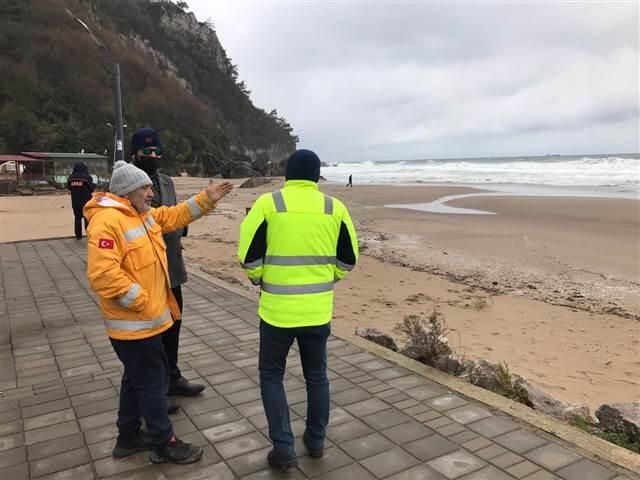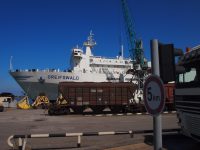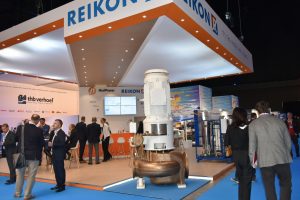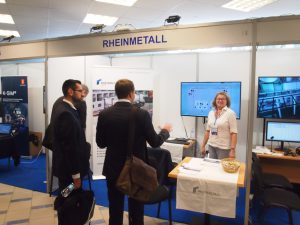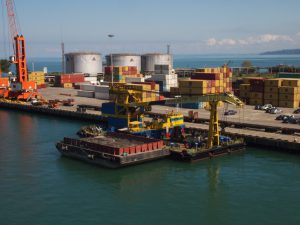The total number of Ukrainians on the international maritime labour market exceeds 100,000 persons. In their turn, the world shipping companies display strong interest towards Ukrainian specialists which means that it is necessary for us to focus at the aspects of seafarers’ training quality, considers Dr. Mikhail Miyusov, Prof., Rector, National University “Odessa Maritime Academy”.
In his interview to “Shipping” the Rector of NU “OMA” told about main goals and tasks of the annual International Forum “Education, Training and Crewing” organized by the Academy. There was also a talk of the changes in the education system, trends on the world maritime labour market and the rating of Ukraine as well as the prospects of Ukrainian seafarers and what they need to become sought-after specialists.
— Mikhail, the ETC forum takes place for 6 years on which tells about success of this event. What are the main tasks and goals of the forum?
“This international forum includes an exhibition and a conference where Ukrainian specialists meet foreign partners to discuss global problems in the sphere of education, practical training, certification and employment of seafarers.
Among the forum participants there are training institutions, simulation centres, shipping and crewing companies, marine simulator manufacturers, software developers, medical centres for examination of seamen and other companies engaged in training and professional activity of seafarers. This is a chance to present the Ukrainian core education system and its efficiency to the international maritime community.
This year forum that was held in May hosted representatives of Bulgaria, Great Britain, Germany, Hong Kong, Greece, Georgia, Denmark, India, Italy, Cyprus, Lithuania, the Netherlands, Norway, Poland, Singapore, Turkey, Ukraine, Sweden, Estonia, Japan as well as the countries that supply or need qualified maritime labour”.
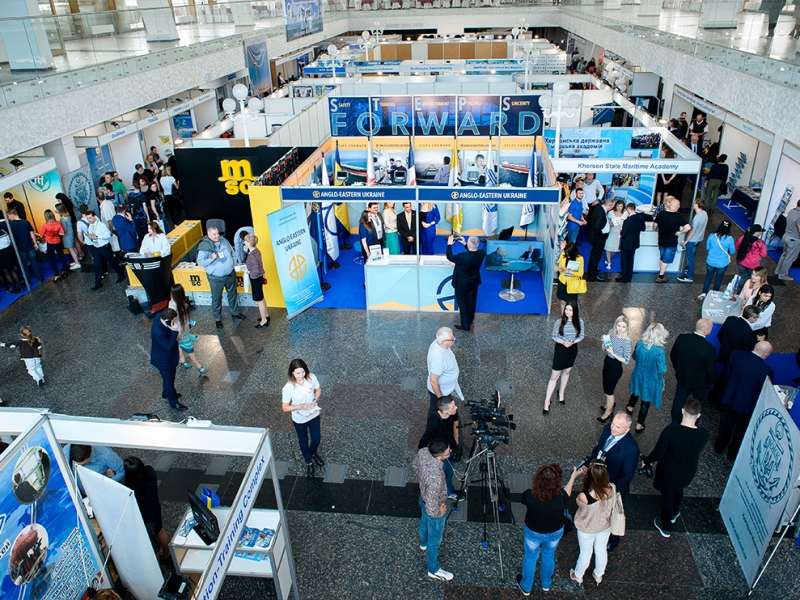
— Some say that Ukraine takes the 5th place among the countries supplying workforce to the global maritime labour market, other sources say that it takes the 6th place. Which figure is true?
“There exists no official statistics on the number of seamen in Ukraine. We make use of BIMCO and ICS data which are published once in five years on the basis of data provided by each country. The nuance is that when making calculations experts apply certain coefficients, as a result, the error may reach up to 50%. In accordance with this data Ukraine takes the 6th place after China, the Philippines, Indonesia, Russia and India.
The same report contains data supplied by the shipping companies which put Ukraine in the top 5 on world leaders. It happens so because the Indonesian seamen are less involved in the international shipping.
The actual number of our seafarers can be evaluated with the aid of the Register of documents issued to seamen of Ukraine which contains data related to the issued valid documents. According to this source, the total number of Ukrainians possessing a seaman’s book comprises more than 110,000 persons”.
— Delivering his speech to the forum the Managing Director of “Anglo-Eastern Ship Management” Mr. Pradeep Chawla told about a good future of Ukrainian seamen. Still, some experts forecast that our specialists can be ousted by seamen of other nationalities. Is it worthwhile to be afraid for the future of Ukrainian seafarers?
“Each year more and more companies begin to work with Ukrainian seamen. A spectacular example presents “Anglo-Eastern Ship Management” which traditionally was working with seamen from the Philippines and India but now it employs more and more Ukrainian officers. Therefore, when talking about officers, it is correct to say that in the short time our officers will have guaranteed employment. Certainly, it is necessary to take into consideration the fact that shipowners are keen to curb operating expenditure wherein the wages take a sizeable portion. Many countries are ready to offer cheaper workforce. It is possible to withstand competition due to high professionalism and loyalty to particular companies.
As regards crew, here the situation is definitely different. First, this market has surplus workforce, the major share belonging to seamen from Asia. The knowledge level of English plays not a small part.
Regretfully, the training system for ratings has been actually destroyed in Ukraine. In the past we had professional technical colleges and nautical schools at big shipping companies which provided for adequate practical training. Nowadays the Ukrainian ratings that go to sea graduate from short-term courses only. As a rule, there is no place for them to get practical training, therefore it is impossible to talk about high quality of ratings training. Certainly, representatives of ratings who already have work experience and good professional skills occupy their niche and we hoe they will be able to retain their jobs”.
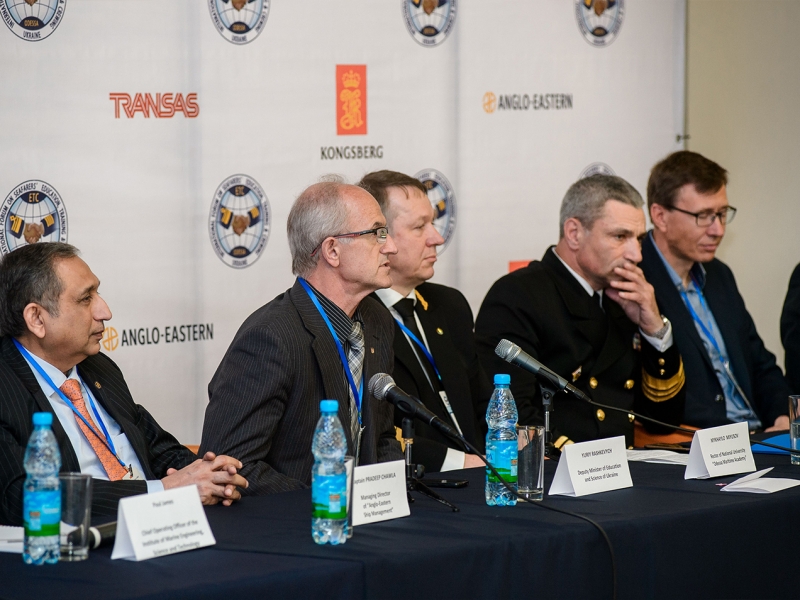
— What are the trends towards increase/reduction of the seamen number in Ukraine?
“Population of Ukraine decreases, that is why we may not talk about any serious increase in admission and graduation of specialists. It is worthwhile to focus not on the numbers – it is desirable to preserve their current level – but on the quality aspects, which makes a problem as well. It happens, above all, because the training level of secondary school graduates deteriorated.
Talking about marine profession, it is necessary to note that schoolchildren are well motivated: our graduates earn their first wages at the level of USD 3,000 and more. We offer good prospects to those who wish to get a profession in demand, moreover because the government funds some students on a tender basis and the specialties obtained in the Academy allow of working both at sea and on shore – in ports, educational establishments and simulation centres, marine companies and agencies and, also, in other countries.
— In Ukraine things change in the educational segment permanently, can you comment how it reflects on the marine specialist training?
“The education sphere in Ukraine, including marine education, has been permanently reformed during the last 20 years. Particularly, a new version of the Law of Ukraine “On Higher Education” adopted in 2014 eliminates the educational and qualification level of “a specialist”. The last graduation of specialists took place in 2018. Accordingly, the system of certification of seamen should be also changed.
The case is that the existing Regulations on ranks of officers came into conflict with the norms of the new law on higher education. Today, in accordance with these Regulations, the ranks of the captain and chief engineer may be filled provided a candidate has been educated and got either the “specialist” or the “master” level. As the “specialist” level has been abolished, consequently, the above positions can be filled by “masters” only. However, now in the world there is no country that has such requirements in the national legislation.
New approaches within the higher education system do not expect that all bachelors should become masters. Though, I can remark that in June 2018 our Academy implemented a procedure for extending the license for training masters therefore all graduate bachelors who will successfully pas the entrance examinations will be able to continue their training at the master’s level either in day-time or extra-mural. Nevertheless, the Regulations on ranks of officers necessitate urgent revision.
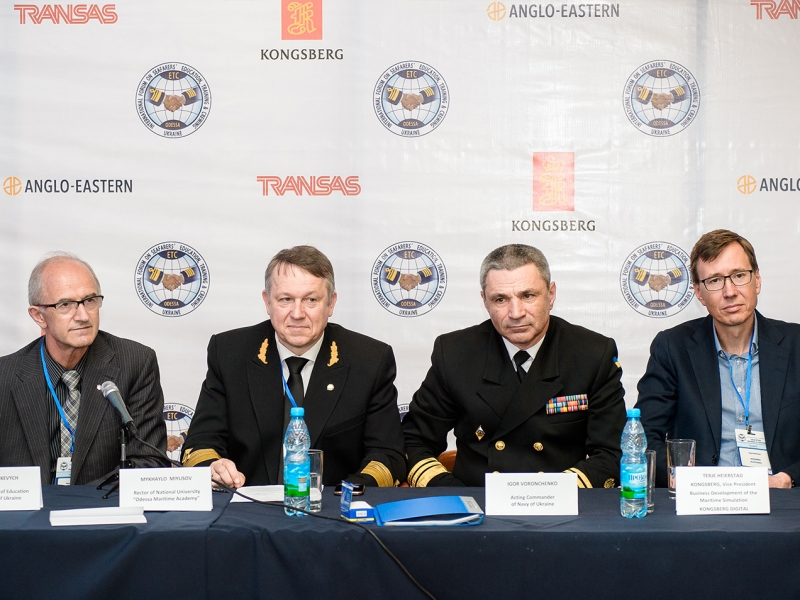
— What are the peculiarities of training specialists in accordance with the new training system?
“The main advantage of the system is that our graduate gets opportunity to commence his work as an officer on board ship not in 5.5 years but in 4 years after the entrance to the Academy. On the contrary, the volume of knowledge that a cadet obtains becomes smaller.
Eventually, our curricula became more challenging: in 4 years of study we have to include 12 months of sailing required to get the qualification, moreover, a “net” qualification because cadets their holidays. Now, in order to become eligible in 4 years, the cadets should have a long practice as early as after the second year. It is very important requirement as the STCW Convention provides for a necessity of a 12 months practice if it is included in the educational program, otherwise the sailing eligibility should equal 36 months. The valid Regulations on ranks allow those graduates, who did not manage to obtain 12 months of the sailing practice, to gain the missing sailing time and pass the appropriate examination at the Inspection for training and certification of seamen within one year after getting the appropriate graduate diploma that will enable them to obtain the first certificate of competency.
— What specialties are most popular with the prospective students of OMA?
“Traditionally, the most popular profession is that of the navigator. In particular, the results of the 2017 entrance campaign the number of young people wishing to become navigators exceeded the number of those who entered the marine engineering department threefold, though the wages, after graduation, are, practically, the same.
Future specialists should understand that such competition will make it more complicated to look for employment for a period of practical training and finding permanent jobs in future.
— What practical training options do the cadets of marine training institutions of Ukraine have?
“As regards the first introductory practice, then we provide cadets with the required practical knowledge due to a single in Ukraine training sailing ship “Druzhba”. We maintain and operate this ship at our own funds, which are considerable; regretfully, these funds cover the operating costs while the ship stays at port only. Every year from 500 to 600 first-year cadets get their practice on board this ship.
As regards the practical training in general, we settle this problem due to foreign shipping companies. The Academy concluded more than 200 contracts with various companies. Some of them take 1-2 cadets for practical training but there are companies that provide for practical training of 50, 100 and more cadets. Especially, last year more than 150 companies participated in organization of practical training of the Academy cadets. Altogether, in 2017 the Academy sent more than 800 cadets to foreign companies for their practical training (less our detached structural divisions).
— Has the Academy got any new partners?
“The number of our partners is increasing. So, we extended our cooperation with “Stargate” Crewing Agency that represents the Japanese shipping company “K-Line”. In 2017 “Stargate” accepted about 80 cadets for practical training. We have reached agreement with this company regarding establishment of a new high-voltage laboratory. New cadet programs were launched by “Goldenport Shipmanagement”, “OceanGold Tankers”, “Naftomar” and “Thome Group”.
Recently a Greek shipping company “Minerva” commenced cooperation with us. It concluded a contract and took the first group of cadets for practical training. We have already received a sponsor support from that company – a life raft and other equipment.
I would like, also, to mention our permanent partners – these are such companies as “V.Ships”, “MSC”, “OSM”, “Stolt Tankers”, “MOL”, “Nordic Hamburg”, “Anglo-Eastern”, “«Columbia Shipmanagement”, “Marlow Navigation”, “Альфа Навигейшн” and others.
On the whole, none of foreign shipowners withdrew from Ukraine until now; accordingly, it can be said that the employment situation in the international maritime market for the Ukrainian officers is favourable enough.
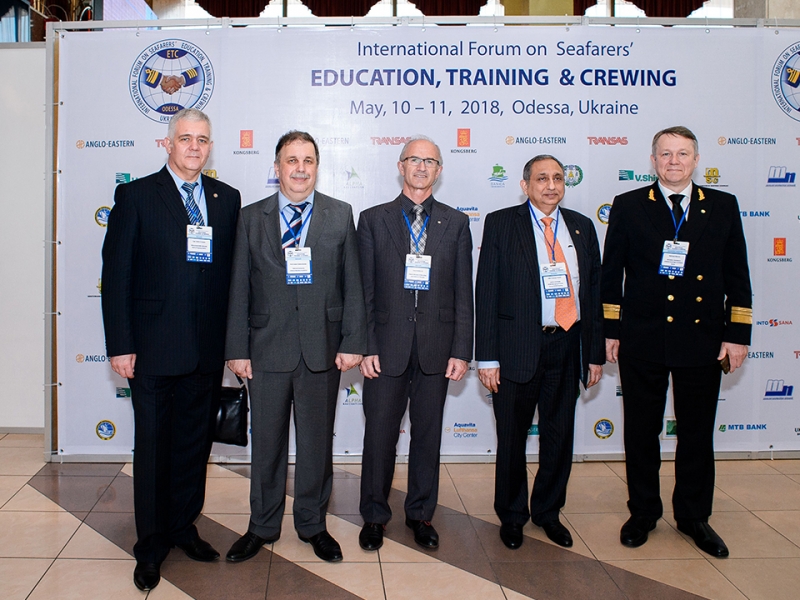
— Mikhail, could you give some advice to future seafarers: what they should do to become sought-after specialists on the international labour market?
“Above all they should know English. The English language is the working language of the global shipping and quite often it is a means of communication on board ship with international crew.
Of no less importance are knowledge and skills in the sphere of safety aspects on boar ship and survival methods at sea. Frequently young people believe that they need just a diploma and the relevant certificates enabling them to work on board. In fact the matter is much more serious. For example, each seaman should have not just a first aid certificate but be also capable of rendering such first aid. It is necessary, as well, to promptly respond to emergencies such as fire, flooding of a compartment, salvage of a man overboard and other situations.
And, above all, professionalism is the main quality which is based on good training. Many companies commence to select cadets for practical training as early as in the second year. That is why those who wish to become a marine officer should understand that well-grounded knowledge is a formula of filling a job and a possibility to become sought-after specialists.

